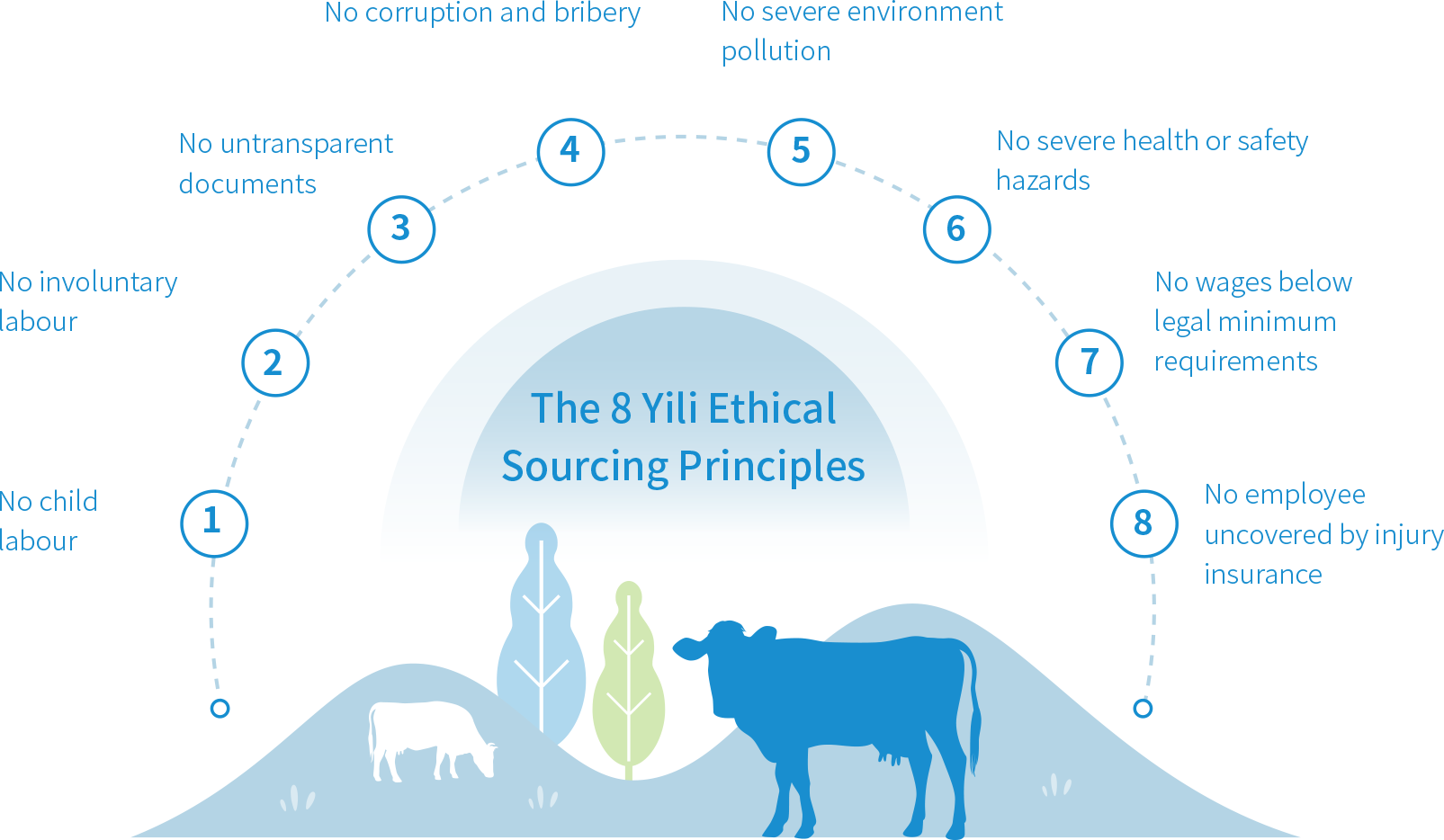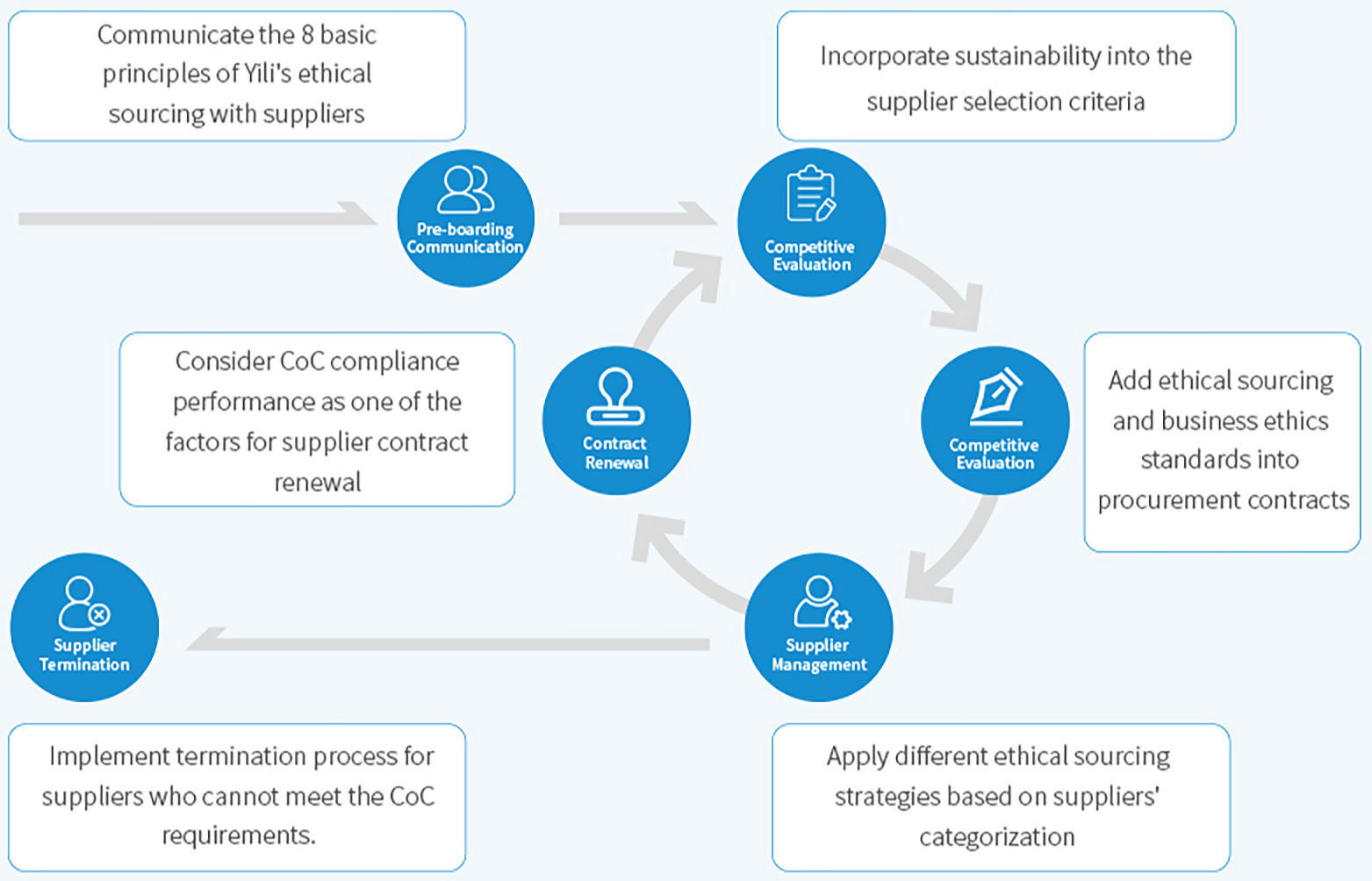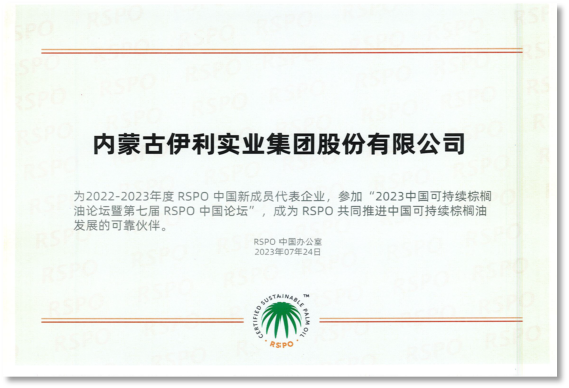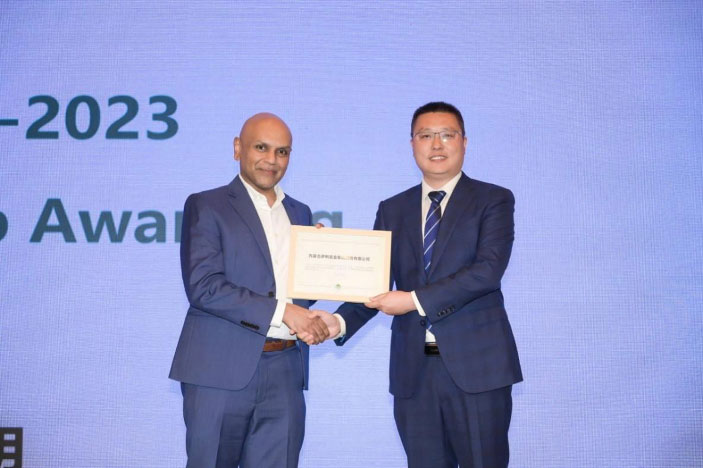As a company that has grown up in China and operates globally, Yili is continuously striving to create value for our consumers, shareholders, and business partners, while also considering how to make our business become more sustainable. We have the highest quality requirements for the products and services provided by our suppliers, and we also hope that our procurement activities can bring greater value to society. Our suppliers should provide a healthy, safe and ethical working environment for their employees and respect them as we do. These will all become the important conditions that help Yili's growth and high-quality development. Therefore, we are willing to cooperate with suppliers who share the same principles and values, and who have a common vision and aspirations with us.
We aim to achieve a deforestation-free supply chain in palm oil, pulp and paper, soy and soy in livestock feed by 2030.
U乐国际将持续推进供应链可追溯性管理和可持续原料采购, 并承诺力争到2030年实现无森林砍伐的棕榈油、纸张和纸浆、大豆和豆粕供应。
The dairy industry spans a range of sectors including cultivation, breeding, and manufacturing, and has a long and complex supply chain system. We progressively devise and refine our ethical sourcing policies and standards by engaging in the exploration, study, and adoption of principles and practices related to responsible procurement from industry leaders and aligning with relevant laws and regulations of our operational countries. As a foundation for doing business with Yili, our suppliers are required to sign a "Responsible Supply Chain Commitment", recognizing Yili's standards for ethical sourcing and meeting the following eight basic principles.

In addition to the 8 basic principles, Yili officially became a member of the Sedex network on 1st November 2023, and issued the "Responsible Procurement Standards " (CoC) in reference to the Sedex Smeta standards. The CoC contains specific requirements for suppliers in terms of environment, health and safety, labor, and business ethics. We implement supplier tiering management where suppliers' sustainability performances are evaluated through questionnaires, on-site audits, and other methods in accordance to our CoC. Based on the evaluation results, suppliers that are not in compliance with our CoC are required to make corrective actions. In order to better integrate ethic sourcing requirements into our daily supplier management, we have also upgraded our supplier management procedures. This ensures that the CoC is reflected in our supplier lifecycle management, including but not limited to:
Supplier Sourcing Procedure
Standardized the supplier sourcing and development process, which includes communicating Yili's 8 basic ethical sourcing principles and CoC
Supplier Tiering Procedure
Suppliers are categorized and managed based on factors such as procurement types, amounts, and risks, and different ethical sourcing management strategies are adopted accordingly
Supplier Audit Procedure
Ethical sourcing audit process for new and existing suppliers is specified, including the standardization of questionnaires, on-site audits, and subsequent follow-up procedures
Supplier Termination Procedure
Clarified the supplier termination mechanism, which includes termination conditions, process and plan, as well as termination due to violation of the principle of ethical sourcing

In the future, we will maintain close communication with Sedex, gradually increase the coverage of onsite audits, and actively cooperate with other international organizations according to business needs.

RSPO Membership Certification

The Executive Officer of RSPO Joseph D' Cruz and Yili Representative
Forest ecosystems serve as critical pillars for both environmental health and human well-being. They are vital for pollination, pest control, and the overall health of the ecosystem, which directly influences agricultural productivity. They also play a significant role in controlling climate change as they act as carbon sinks, absorbing carbon dioxide from the atmosphere, which helps reduce global warming. Therefore, actively managing and reducing potential deforestation risks in our procurement process is a key measure for Yili to cope with climate change and protect biodiversity. In July 2023, at the China Sustainable Palm Oil Forum and the 7th Roundtable on Sustainable Palm Oil (RSPO) China Forum, Yili Group officially announced its membership in the RSPO. At the forum, Yili also released its "Sustainable Palm Oil Responsible Procurement Policy" and procurement targets for RSPO certified palm oil. From 2024 to 2030, Yili will increase the traceability level of sustainable palm oil to the highest level- the identification preserved palm oil (traceable to the plantation) by 50 tons each year.
100% Palm Oil Supplier Certified by RSPO
Became a member of RSPO
Until 2030, purchase 50 tons of IP level palm oil each year
Moving forward, Yili will work closely with the RSPO by proactively engaging in global discussions on deforestation-free palm oil procurement, leveraging experience and best practices both domestically and internationally. We will also increase the traceability of palm oil and the ratio of certificated palm oil to reduce the potential impact on native species' habitat from our procurement activities.
Each cow serving Yili has its own electronic ear tag with detailed health information registered with Yili to ensuring traceability throughout the cow's service period at farm
Each milk delivery truck is equipped with a satellite positioning system, ensuring the vehicle, route, and delivery duration can be traced at 24/7 level

After the truck enters our factory's "electronic fence", the data is automatically synchronized with our delivery system, ensuring the transparency and traceability of raw milk
27 national wide surveillance centers monitoring all key production control points of all our dairy farms, ensure the traceability and controllability of raw milk production process
Electronic seal is applied to every milk tank of the delivery truck to ensure the unsealing can be traced back to a specific time, location, and personnel, guaranteeing the quality and safety of raw milk during transportation
Every delivery truck needs to undergo an "end to end" traceability check after arriving at the factory, and only those raw milk with complete traceability information can proceed to delivery for production
*1. Including social ranches, controlled ranches, and self owned ranches
Our raw milk is 100% traceable
37 dairy farms in our supply chain are certified with Good Agriculture Practice (GAP) certifications
18 core dairy farms of our supply chain are certified with Organic Products certifications